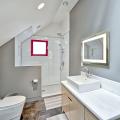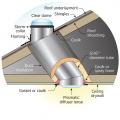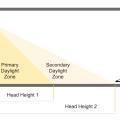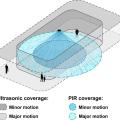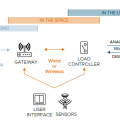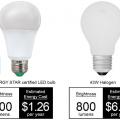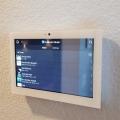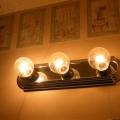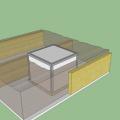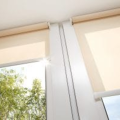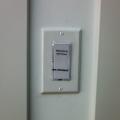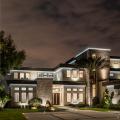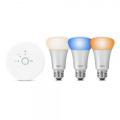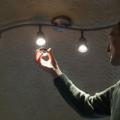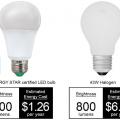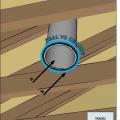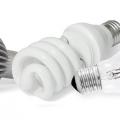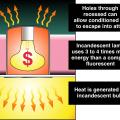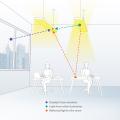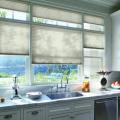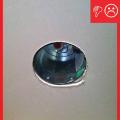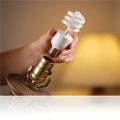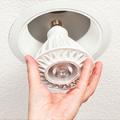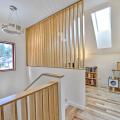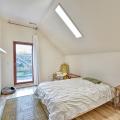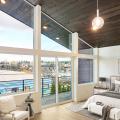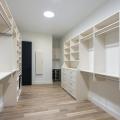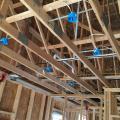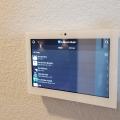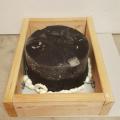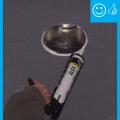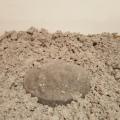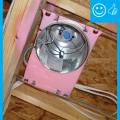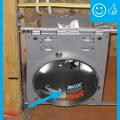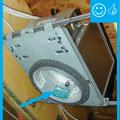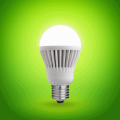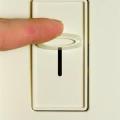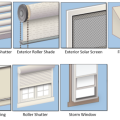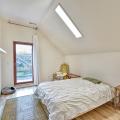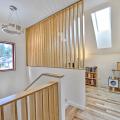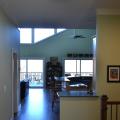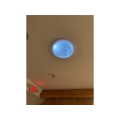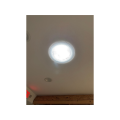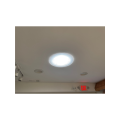Showing results 1 - 50 of 65
A solar tube provides more natural light while maintaining privacy for this bathroom.
Air-seal around recessed can light fixtures that are installed through ceilings to keep conditioned air from leaking into unconditioned space.
Building energy codes often reference primary and secondary daylight when specifying daylighting control requirements – the primary daylight zone or distance into the room from the window equals the window height from the floor.
Comparison of potential motion detection ranges for a passive-infrared sensor and an ultrasonic sensor used for lighting controls
Components of a networked lighting system, their location, and communication (digital or analog) and wiring (wired or wireless) connections between each component.
ENERGY STAR certified LEDS save energy and money compared to halogen lamps used for the same application.
Example of a touchscreen control interface that allows a resident to adjust the lighting and integrate other home technologies, such as a security system or sound system
Examples of a motion sensor that is integrated with a light fixture (left) and a ceiling-mounted sensor (right) that is separate from the light fixtures but is used to turn on or turn off the lights.
Incandescent lights such as these are a wasteful consumer of generator or battery energy, producing much more unwanted heat than light
Install a sealed enclosure over a non-IC rated recessed light fixture to air-seal the can and to prevent insulation from touching the recessed can light.
Interior window attachments such as these light-filtering roller shades can reduce heat gains while providing pleasant, diffuse natural light.
Internet-enabled lighting controls are part of many home automation systems and can increase safety and security as well as energy efficiency.
LED interior and exterior lighting makes a stunning display without a big energy penalty.
LEDs are especially efficient in fixtures that send light in one direction, like track lighting
LEDs cut energy costs by using less watts to produce the same amount of light as other light sources.
Light tubes adjacent to unconditioned space include lens separating unconditioned and conditioned space and are fully gasketed
Photocells sense daylight entering from windows, ambient light from other luminaires, and reflected light bouncing around the room.
Pleated blinds provide cooling savings in summer by blocking and reflecting sunlight, while allowing some diffuse daylight to pass through.
Right - Skylights can add natural light in rooms with limited wall space and if openable can provide desirable ventilation, especially when located at the top of stair wells.
Right - Skylights provide natural light while maintaining privacy in a narrow second-story bedroom.
Right - Triple-pane windows let in light and views while minimizing heat loss in winter and unwanted solar heat gain in summer.
Right – Smart equipment for homes may include a tablet or touchpad from which the homeowner can control lighting, HVAC, window shades, security, music, and other home automation features.
Right – The insulating enclosure over this non-IC rated recessed light fixture is centered and air sealed
Right – The top of the enclosure over this recessed can light remains clear of attic insulation
Right – This ICAT recessed light is sprayed with foam to act as gasket against the drywall.
Screw-in LED light bulbs are a highly efficient alternative to residential incandescent bulbs.
Seven categories of exterior window shading attachments, identified on the DOE Efficient Window Coverings website.
Solar-powered LED lights installed inside this sun tunnel (or solar tube) provides light at night alongside daylight provided by the sun tunnel during the day, thus reducing the need for electric light.
